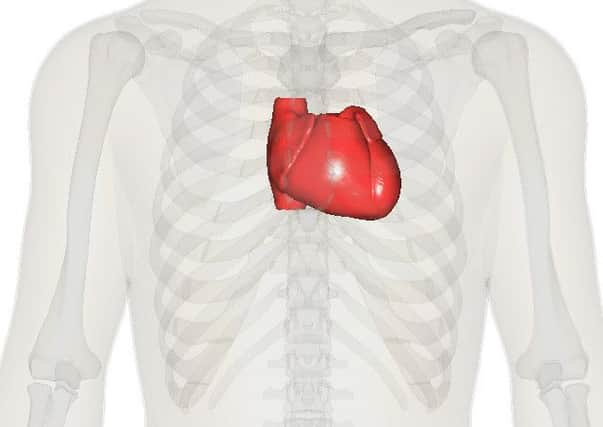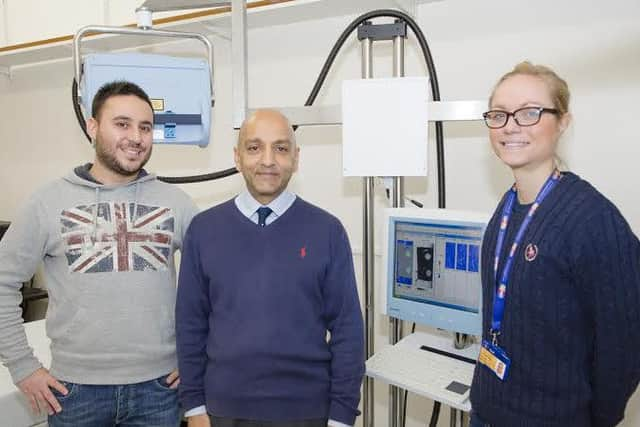Dundee scientists in heart disease breakthrough


Researchers at Dundee University are now investigating how to “switch off” the substances which can cause inflammation in the blood vessels.
The group of enzymes - known as SIKs - reduce the production of chemicals which protect the blood vessels from inflammation.
Advertisement
Hide AdAdvertisement
Hide AdBy shutting off the SIKs, it is hoped the protective chemicals can do their job.


The two year project is being funded with a £137,206 grant from national charity Heart Research UK and is led by Dr Faisel Khan.
Dr Khan said the Heart Research UK grant would allow his team to do further research into what could lead to a new treatment for cardiovascular disease.
He added: “By understanding how persistent inflammation occurs and finding ways of preventing it, there are real possibilities that this research could lead to new treatments in the future.


“These enzymes play an important role and the key is to isolate those that are harmful and encourage those that are protective.”
Chronic inflammation plays an important role in the development of cardiovascular disease, particularly atherosclerosis – the build-up of fatty material inside blood vessels.
Combined with risk factors such as obesity, high cholesterol and high blood sugar, the lining of the blood vessels becomes damaged, which leads to the production of inflammatory chemicals.
Some of these chemicals are harmful to the blood vessels and promote atherosclerosis, while others are protective.
Advertisement
Hide AdAdvertisement
Hide AdDr Khan said that understanding how inflammation and blood vessel damage is caused may allow steps to be taken to counteract them.
Barbara Harpham, national director of Heart Research UK, said: “We fund research that aims to benefit patients as soon as possible.
“We hope that Dr Khan’s project will give interesting insights into the role of inflammation in the development of cardiovascular disease and how manipulation of these enzymes may represent a new treatment to prevent coronary heart disease and heart attacks.”
Over the last 10 years, the charity has funded over £10.2 of medical research in hospitals and universities and £1.7m on community lifestyle projects that encourage healthy living.
As part of its study, the Dundee University research team hope to examine hospital patients who have been admitted for care following an acute heart attack.